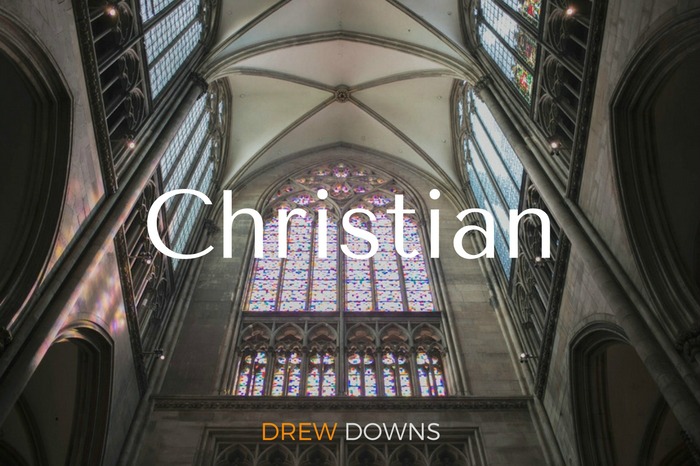What is a Christian? The short answer is that there isn’t one definition. Never has been.
From the very beginning, Christians are a loose collection of people with overlapping theistic belief.
Today, given our media coverage and infighting, that truth may be hard to see.
Throughout history, we have tried to name common belief with some amount of modest success.
We have come to agree on some principle concepts: about a relationship within the one God of three personas: often known as the Trinity.
Among Christians, there is common agreement on the centrality of Jesus; particularly in his life, death, resurrection, and ascension.
And we agreed to have a common set of Scriptures, containing those Hebrew Scriptures from our Jewish roots and Greek Scriptures written by our earliest followers.
After that, common belief starts to get dicey.
Our human need to always be right and never, ever have our views be shamed means division and separation is imminent.
What do we actually mean when we say we are a Christian?
Since the Christian faith is so segmented into various groups we call denominations, the term Christian is the most ambiguous there is. There are a few outliers, which are even harder to define, such as “Christ Follower”. Or if we want to go Full First Century, we could adopt “Follower of The Way.”
Christian is as generic and all-encompassing a word as you can get. A big tent which holds Catholic, Orthodox, Anglican, Coptic, Charismatic, Protestant, and Pentecostal traditions.
But not everyone thinks so broadly.
Exclusive Traditions
Many Christians claim a stranglehold on belief and tradition, claiming theirs is the one true religion. To these, “Christian” becomes specific to their tradition, whether it be Catholic or Fundamentalist.
This is sneaky politics, if you think about it. One imprints a specific brand of faith upon a broad, big tent term. Often arguing specific beliefs not universally agreed upon as a litmus test for true faith.
While this is a trap most within the tradition fall into more or less, it would be false to say we do so equally.
Take the Fundamentalists for example. At the end of the 19th Century, a loose cohort of Christians came to agree on an additional set of beliefs which go beyond the great councils. And these beliefs are not necessarily shared by the broad spectrum of Christianity. Most notable is the literal interpretation of Scripture.
But many contend that these beliefs are central. Even if the vast majority of Christians never agreed to them.
How do we come to believe, then?
If “Christian” is such a broad term and speaks to only the most basic of commonly agreed ideas, then from where does our belief come?
As a good Anglican, I’ll say Scripture, Tradition, and Reason. But these three sources are actually pretty universal.
We learn from…
- Reading Scripture. We have a Bible which is chock full of shockingly different ideas about living in this world but is undergirded by a common theme of God’s love and devotion to us. And we see this love go not only to the righteous but to a bunch of screw ups and arrogant blowhards as well.
- Sharing Tradition. We stand on the shoulders of giants who have asked all these questions before and who have wrestled with the truth as they received it. Our tradition shapes our common understanding and gives us wisdom we would not have on our own, or from simply reading the Bible straight through. Not to mention the wisdom of dealing with differing ideas about translation and language usage in our Scripture.
- Using Reason. Humans are blessed with brains which think and deduce and discern. And we use them to understand our Scripture and Tradition in light of our experience. And outside of scripture and tradition, many of us have had moments with the divine which have led us to belief.
What many of us in the West struggle to realize about the faith is that it is such a loose framework. And it is both personal and corporate. But not set in stone. It is not universal or unchanging.
We come at it from different perspectives and bring with it our different experiences. We aren’t the same! And neither are our faiths!
Nor is faith uploaded, fully constructed into our brains so we might all have the same user experience.
This, in fact, is the point!
Our faith is made by walking. A journey beyond belief and into a new way of being.
We don’t get that with rules, systems, and identical traditions.
We get it by living, moving, and sharing our life with one another.
So, what is a Christian?
More than her beliefs, her tradition, or the church she attends.
It is more than a set of rules, practices, or rituals common to others who call themselves Christian.
It is living a life of inspiration and devotion based on the shocking idea that God would care at all what happens to us.
Honestly, I think you become a Christian the second that idea not only brings a sense of calming joy but sheer terror at this awesome responsibility. And the best thing you can think of is to thank God.

